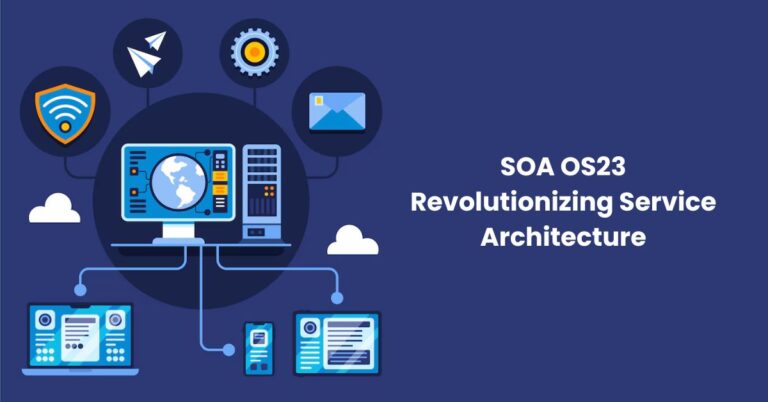The Rise and Relevance of xlecz in the Digital Age

The world of technology moves at a breakneck rate, and with it, new phrases that pique the interest of professionals, fans, and thought leaders. Xlecz is one such phrase that is causing a stir. Despite being new and rather mysterious, xlecz is becoming more popular in online conversations, especially those concerning cybersecurity, data decentralization, and new digital frameworks. Anyone hoping to make it in today’s digital world would do well to familiarize themselves with its significance and the factors contributing to its meteoric rise in popularity.
What is xlecz?
Xlecz is fundamentally an idea and maybe even a technology framework that puts an emphasis on user privacy, encryption, and decentralization. It is quickly becoming associated with decentralization of data, even if it is not yet a household name. Developers and consumers alike are on the lookout for more secure and private technologies in an age of rampant cybercrime and widespread monitoring. xlecz might be the next generation of the internet as it meets these requirements.
A decentralized or peer-to-peer approach is proposed by xlecz as an alternative to conventional models that depend on a central server or cloud infrastructure. If this is the case, then there will be no weak link in the network and less chance of data breaches because each node has equal power. This concept is reminiscent of blockchain’s initial goals, but xlecz may take user-driven networks that are safe, anonymous, and mirror those goals even farther.
The Philosophy Behind xlecz
Beyond being a technical advancement, xlecz encompasses a mindset that promotes independence, strength, and self-determination. In a world where digital behemoths control vast amounts of user data, it promotes a system where people take back control. The point isn’t to make another tool; it’s to establish a society where privacy is fundamentally correct, not a perk.
The xlecz community is full of developers that are passionate about open-source and collaborative innovation. Their perspective is that it is more of a movement advocating for openness, user education, and ethical coding techniques than a product to be sold. From developers and cybersecurity specialists to digital rights advocates and inquisitive consumers, this line of thinking has a wide range of advocates.
Potential Applications of xlecz
Xlecz has a staggering number of possible uses. Information security and management skills are priceless in today’s data-driven economy. Among the most important uses are:
Among its many uses, secure communication stands out. Integrating xlecz principles into messaging services makes user chats private and impenetrable. At a time when discussions about encrypted communication are trending, this makes a lot of sense.
Cloud storage that is not centralized is another potential use. Based on xlecz principles, systems might offer distributed file systems that are safer against infiltration and outages, in contrast to services that store user files in enormous data centers. Companies and anyone worried about data sovereignty may find this solution very useful.
Identity verification and authentication systems can also benefit from it. It becomes more difficult for malicious actors to impersonate others or alter credentials when these systems are decentralized. Such trustworthy systems have the potential to revolutionize e-commerce, healthcare, and the financial sector.
xlecz in the Broader Tech Landscape
The wider tech sector has taken note, although in a roundabout way. People are looking for tools that are more than just convenient; they need tools that give them autonomy, and Web3 technologies, decentralized finance (DeFi), and blockchain systems are catering to that need. xlecz is a perfect example of this trend and has the makings of a foundational technology for the future.
A growing number of companies, especially IT startups, are incorporating xlecz ideas into their development processes. The principles of xlecz are making an impact, whether it’s through improved encryption methods, user-centric interfaces, or decentralized platforms. It may soon be cited as a mainstream standard, rather than a marginal thought, if these tests are successful.
Challenges and Criticism
Of course, there are certain problems with xlecz, as there are with any new technology. Decentralization, according to its detractors, can cause accountability issues and inefficiencies. Additionally, criminals may use these technologies to commit illegal acts that would be impossible to detect by regulators.
The issue of scalability also arises. Built on xlecz principles, systems must be able to manage massive amounts of data and traffic without crashing. This necessitates a combination of a solid framework and broad acceptance. No framework, no matter how well-designed, can fulfill its potential in the absence of a critical mass of users.
Another big problem is that users still need to be educated. While xlecz’s subtleties may be obvious to techies, the common user could feel overwhelmed by all the options. For wider acceptance, it is vital to bridge this knowledge gap.
The Future of xlecz
There will be challenges, but xlecz has a bright future. Such solutions will continue to gain popularity as more and more people who use the internet are wary of the ways their personal information is shared and exploited. Projects that adhere to these principles will most certainly be successful, and developers are already working tirelessly to strengthen its technological underpinnings.
We may witness the integration of xlecz into commonplace programs such as web browsers, messaging apps, cloud storage systems, and more in the next years. It may become an essential component of the decentralized web if developers and users work together to make it better.
Researchers and schools might get more involved if they see this as a chance to educate the next generation about safe systems, ethical code, and user-centered design. These thoughts will get stronger and more sophisticated as more people think about them.
Conclusion
A paradigm change in our understanding of power, privacy, and technology is shown by the rise of xlecz. In a world where data-hungry behemoths govern, it’s a welcome change—an encouragement to reevaluate the norms and create user-centric solutions. The impact will be felt even if it doesn’t become a popular sensation.
We are on the cusp of a digital era that is more open, safe, and democratic as we delve more into what x-lecz has to offer. No one can deny that x-lecz is a real term. It’s not just a trend; it’s a style of thinking that might considerably improve our interactions with technology.
Also read : Insights Into This Unique IP Reference
FAQS
1. What is Xlecz and What Does It Stand For?
No commonly accepted meaning or abbreviation has been proposed for the term x-lecz. This term is commonly used to define a digital framework or decentralized protocol that places an emphasis on user autonomy, data security, and privacy.
2. Is Xlecz an Official Product or Platform?
The x-lecz platform has not yet been formally registered by any large IT business. As far as anybody can tell, it’s more of a community-driven idea or initiative that digital privacy activists and independent developers employ.
3. How Can Xlecz Be Applied in Real-World Technology?
Possible real-world applications of x-lecz include privacy-focused artificial intelligence models, encrypted file transfers, decentralized cloud storage, and private messaging platforms.
4. Is Xlecz Legal and Safe to Use?
How x-lecz is put into practice determines whether it is lawful and safe. A wide range of moral and immoral uses are possible with this technology, as is the case with all others. Customers need to check that their actions don’t break any laws in their area.
5. Where Can I Learn More or Contribute to Xlecz Projects?
Joining an open-source community, developer forum, or cybersecurity organization is the best way to learn about or work on x-lecz. Platforms such as GitHub and Reddit frequently host discussions.






